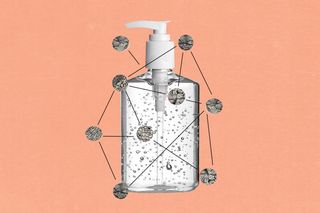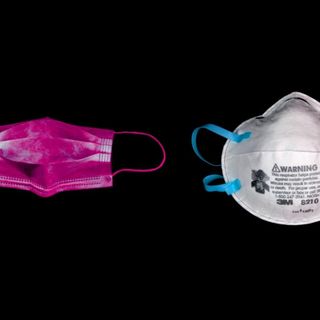
Which Hand Sanitizers Can Effectively Kill a Virus?
The alcohol content in hand sanitizers must be between 60% and 95%.

Amid news reports and a barrage of tweets about hand sanitizers selling out rapidly, some people are attempting to educate others about hand sanitizers. Some talk about how effective they really are and how many times can one use them (there’s no limit), while others are just asking you to simply go and use soap and water instead of relying on sanitizers.
So, what does one really do?
The Centers for Disease Control and Prevention (CDC) recommends handwashing as the most effective form of protection against Covid19. Handwashing breaks up and removes all types of germs, chemicals, oils, and grease on one’s hands in a way hand sanitizers cannot. But, it adds, “If soap and water are not available, using a hand sanitizer with at least 60% alcohol can help you avoid getting sick and spreading germs to others.”
In an article for The Conversation, Jeffrey Gardner, associate professor of biological sciences at the University of Maryland, Baltimore County, explains that alcohol is effective at killing various kinds of microbes — viruses and bacteria — because it deactivates their proteins. The process, known as denaturation, helps cripple and kill the microbes. Alcohol is especially effective in denaturing viruses with an outer covering called an envelope, a category coronavirus falls under.
Per the CDC, sanitizers with 60% to 95% alcohol are most effective at killing viruses compared to those with a lower concentration. Sanitizers that are not in this range “may not work equally well for many types of germs, or merely reduce the growth of germs rather than kill them outright,” it states.
On sanitizers, alcohol may be listed as ethanol, isopropyl alcohol, or ethyl alcohol; whichever the name, as long as the ingredient reaches the recommended levels between 60% and 95%, use of the sanitizer is effective, regardless of other ingredients, Business Insider reports.
Counterintuitively, sanitizers with 100% alcohol content aren’t as effective. Gardner explains denaturation works faster if a small amount of water is mixed with alcohol. “And pure alcohol would evaporate too quickly to effectively kill bacteria or viruses on your skin, especially during winter when the air is less humid,” he writes.
In addition to that, using sanitizers with 100% alcohol content can make the skin dry or cause it to become irritated, discouraging the use of sanitizers altogether and resulting in more dirty hands. It is for this reason that most sanitizers contain emollients or mixtures that help soften and moisturize the skin.
Hands after washing and using sanitizer for the 17032020th time. 😭😭#CoronavirusOutbreak pic.twitter.com/AgzhbRbSRq
Related on The Swaddle:
Forget Masks — Handwashing Slows an Epidemic More Effectively: Study
And for those with concerns about alcohol in sanitizers, for religious or other reasons — no, alcohol-free sanitizers simply don’t kill germs. The CDC doesn’t recommend alcohol-free sanitizer because so-called alternative disinfecting agents, like coconut oil,can’t kill germs; all they might do is reduce the growth of new germs.
Seeing a surge of searched for halal, non-alcoholic hand sanitizers & some online vendors selling them. No, it doesn't get absorbed via the skin; it evaporates. They are not effective. Please stop using religion to market pseudoscience. #COVID19
Some alternative sanitizers made by the brands Purell and Germ-X use benzalkonium chloride instead of alcohol as the active ingredient. “Such non-alcohol antiseptic products may not work as well for many types of germs,” write Marshall Allen and Lisa Song for ProPublica.
Given the shortage of hand sanitizers of any kind, however, is it possible to make an effective homemade batch of sanitizer?
Gardner says no. “You may see do-it-yourself formulas online, including some that use vodka. However, vodka is typically 80 proof, which means it’s only 40 percent alcohol. That’s not high enough to effectively kill microbes,” he writes. “The best choice is to wash your hands with soap and hot water.”
Finally, if you’ve found yourself going back to bottles of sanitizers you haven’t used for a while, beware of the expiry date on them. Most commercial sanitizers are effective only for a couple of years if stored properly and have expiry dates marked properly on them.
“One thing to keep in mind is that alcohol is volatile, which means that over time the alcohol will slowly evaporate and the sanitizer will lose its ability to effectively kill viruses and bacteria,” Gardner writes.
Anubhuti Matta is an associate editor with The Swaddle. When not at work, she's busy pursuing kathak, reading books on and by women in the Middle East or making dresses out of Indian prints.
Related


Debunking the Myths About Covid19
